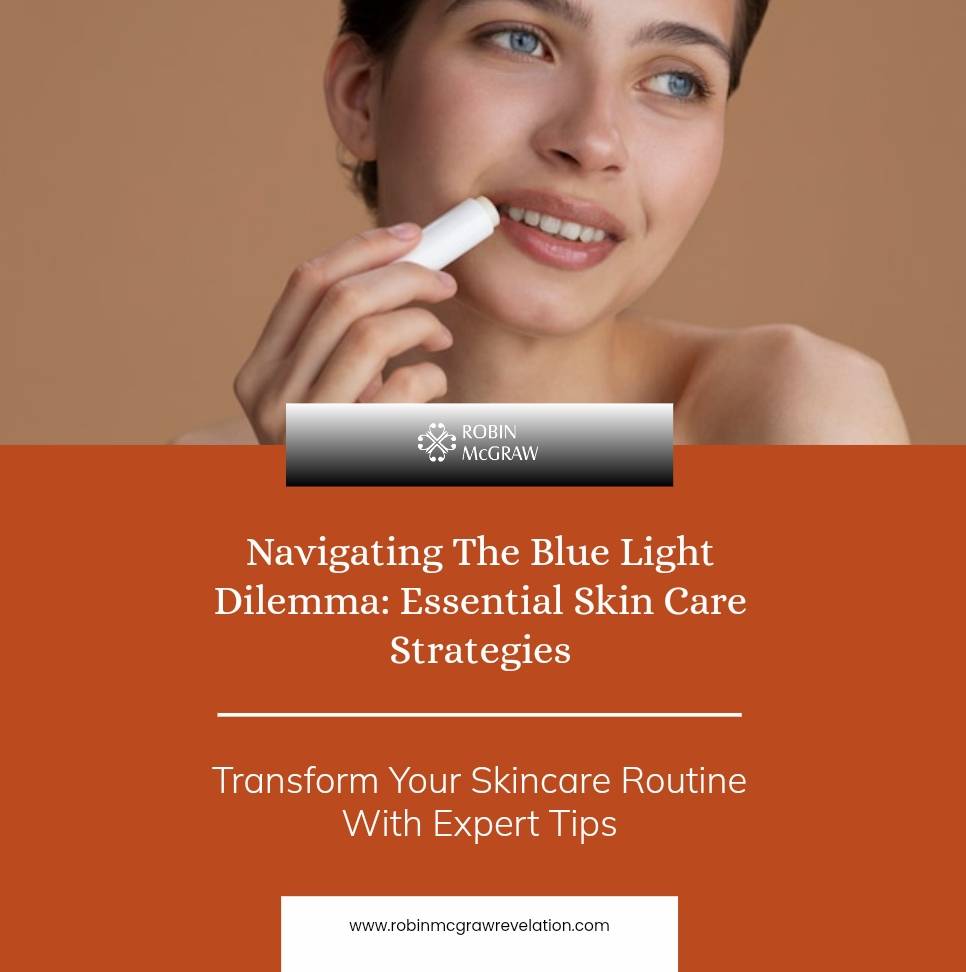
Navigating the Blue Light Dilemma: Essential Skin Care Strategies
Introduction
In an era where digital screens are an integral part of our daily lives, the concern for skin health transcends beyond the traditional boundaries of sun exposure and environmental pollutants. The invisible yet pervasive blue light, emanating from our beloved gadgets, poses a new frontier in skin care. This article delves into the nuances of blue light's impact on our skin, offering insights and strategies for effective protection and care.
Understanding Blue Light and Its Sources
Blue light, part of the visible light spectrum, is omnipresent in our modern environment. Emitted by the sun, it is also prevalent in artificial sources like smartphones, computers, and LED lighting. Unlike UV rays, known for their skin-damaging potential, blue light has been under less scrutiny until recent studies shed light on its potential skin-related implications. While it's less intense than UV radiation, its omnipresence and exposure duration raise valid concerns for skin health.
The Impact of Blue Light on Skin Health
Recent scientific explorations reveal that prolonged exposure to blue light can potentially lead to skin issues similar to those caused by UV radiation. This includes photoaging – the premature aging of the skin. While the energy from blue light is not as damaging as UV rays, its ability to penetrate deeply into the skin can lead to oxidative stress, contributing to the breakdown of collagen and elastin, vital proteins responsible for the skin's elasticity and firmness.
Strategies for Protecting Skin from Blue Light
Protecting your skin from blue light involves a multifaceted approach. First, moderating screen time, especially during night hours, can significantly reduce exposure. Utilizing screen filters on digital devices that minimize blue light emission is another effective strategy. Additionally, adjusting indoor lighting to warmer tones and using anti-reflective lenses can further shield your skin from unnecessary blue light exposure.
Skincare Solutions for Blue Light Exposure
In the realm of skincare, innovation has kept pace with technological advancements. Products specifically designed to fortify the skin against blue light are emerging. These formulations often contain antioxidants like vitamins C and E, which combat oxidative stress. While no specific product names are endorsed here, it's advisable to look for skincare items that promise blue light protection and are rich in antioxidants.
Long-Term Effects and Preventative Measures
Understanding the long-term effects of blue light on skin health is crucial. Prolonged exposure may not only accelerate aging but also exacerbate skin conditions like melasma and post-inflammatory hyperpigmentation. Preventative measures go beyond topical solutions. Embracing a holistic approach that includes a balanced diet rich in antioxidants, adequate hydration, and proper sleep can enhance the skin's natural defense mechanisms. Integrating these lifestyle choices with mindful digital habits forms a comprehensive shield against the potential adversities of blue light.
Blue Light, Skin Aging, and Acne: Connecting the Dots
The correlation between blue light exposure and skin aging is a topic of growing interest. Studies suggest that blue light can trigger biological processes that lead to skin aging, much like UV light. Moreover, there's emerging evidence linking blue light exposure to acne exacerbation. It's believed that blue light can stimulate the oil glands in the skin, leading to increased oil production and potentially worsening acne conditions. Recognizing these connections is pivotal in formulating both preventive strategies and targeted treatments.
Conclusion: Empowering Skin Care Choices
In conclusion, the journey through the landscape of blue light and skin care is an evolving one, marked by continuous research and advancements. Armed with the knowledge of how blue light affects the skin and the myriad of ways to protect against it, individuals are better equipped to make informed decisions about their skin health. Embracing a proactive approach to skincare, informed by science and tailored to individual needs, is the cornerstone of effective skin protection in the digital age.
Key Takeaways for Quick Readers
- Blue Light Basics: Blue light, prevalent in digital screens and sunlight, can affect skin health by causing oxidative stress and potential photoaging.
- Protection Strategies: Reduce screen time, use filters on digital devices, and opt for indoor lighting with warmer tones to minimize blue light exposure.
- Skincare Solutions: Seek skincare products rich in antioxidants like vitamins C and E to combat blue light-induced oxidative stress.
- Lifestyle Integration: Complement topical treatments with a healthy lifestyle, including a diet rich in antioxidants, to bolster the skin’s defense.
- Awareness and Action: Stay informed about the evolving research on blue light and skin health, and adapt skincare routines to include blue light protection strategies.

